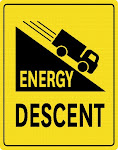What are your ethics when it comes to food? Is there an honourable way to kill an animal, or does all meat eating rely on merciless acts of anthropocentric violence? Do you believe that both factory farms and traditional cultures' treatment of animals for meat production belong to the same dirty moral code? Where do you cross the line in terms of killing non-human nature? Is pulling a carrot out of the ground a better sort of violence, committed upon hundreds of microorganisms, than pulling a fish out of water? At what point does sentient non-human nature begin and end for you?
Earlier this week I left the following comment on a vegan blogsite whose authors moderate their comments. It thus far has not been published and therefore I wonder whether this discussion could take place elsewhere, such as here, now, with you?
hello,
i've been enjoying your blog and watching your transitions with great interest. i and my family are doing similar things here in central victoria. we do however have quite a different view when it comes to certain foods, which i wish to speak to here if i may.
i tend to take my lead from traditional communities when it comes to food, and i read every industrialised and transported carrot, synthetic consumable or rump steak as an abuse on the landbase and upon non-human nature.
growing our own food is probably the most beautifully loaded thing we can do. growing food while repairing the landbase is the most essential thing i've ever done. in our household we eat a little meat for protein and simple joy. it is always local. we occasionally catch redfin (english perch) out of the nearby lake. and whereas, i find fishing for recreation a pretty cruel endeavour, i don't when it comes to survival. i watch our chooks eat worms, fish remains or dead mice for protein and i tend to follow their lead as much as possible as they free-range over several neighbouring properties, living a life i cld only wish for in terms of carefreedom. we provide our chooks with shelter, warmth, love and protection from foxes. they in turn provide us with eggs, manure and joy. we are in a reciprocal relationship with them specific to a permaculture.
factory farms are a telling pathology of civilisation. living in some form of natural order alongside or directly with non-human nature is for me being led by nature, not human ideology or growth economics. this is why i supplement my diet with our eggs and a little local meat. ideally i wld like to get my protein just from roadkill, which attends to my relationship with anthropogenic waste. i do use roadkill in my compost as a starter, like a leaven.
i've never worked out why most vegans i meet see carnivores as having the same dirty moral code. it seems to speak out against one of the most sustainable human cultures ever to inhabit the earth – indigenous australians. their aquaculture, agricultures (yams in these parts) and hunting methods enabled an unprecedented permanent culture.
one of my great problems with western veganism is that it seems to come from an urban disembodiment. it seems to me like a mediation, rather than an ethic that is gleaned through active biomimicry.
these are a few of my thoughts thus far. your thoughts/ comments/ critique of them might prove to be a valuable discussion.
yours in congenial anarchism,
patrick
Read more...









